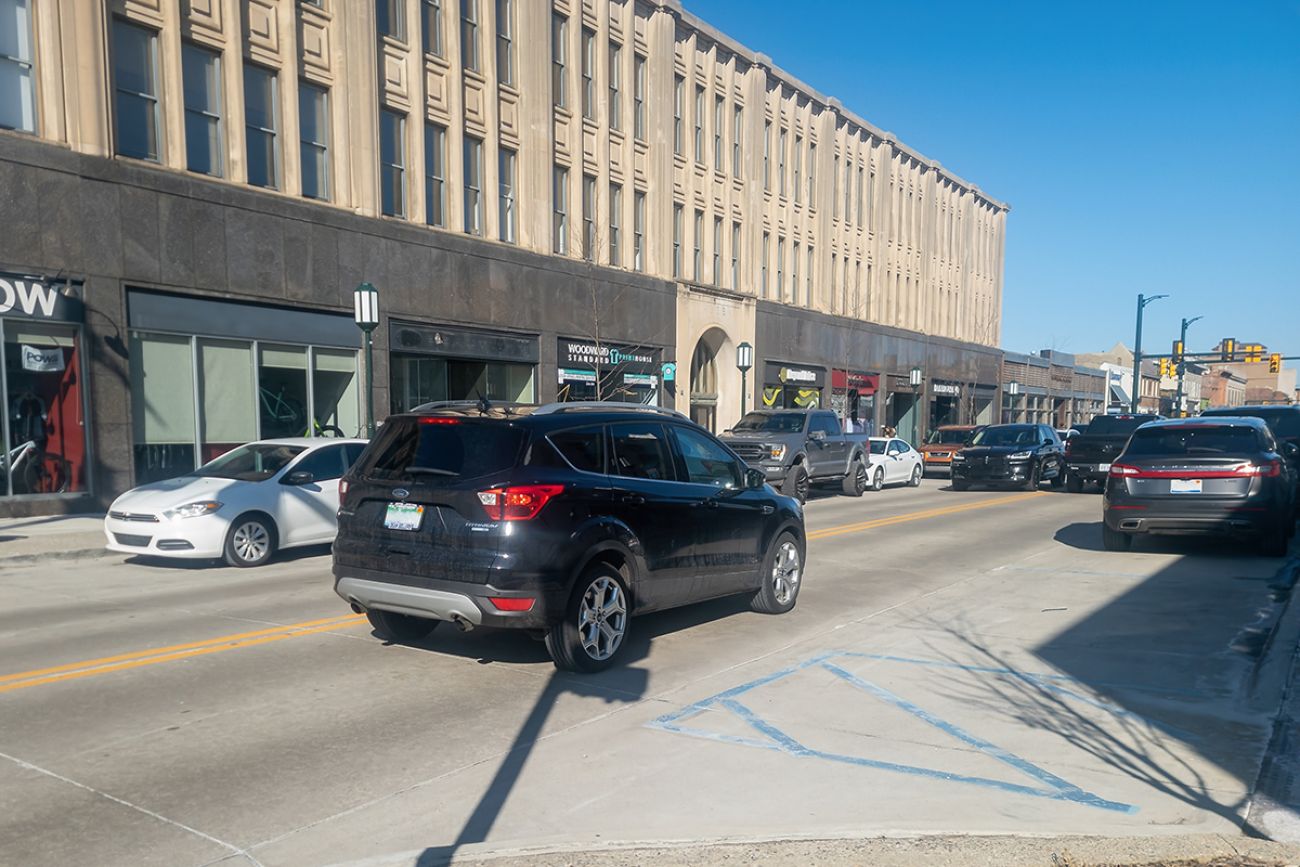Michigan’s new roads plan: More money for big counties (that vote Democratic)

- Michigan House, Senate Dems want more money for local roads
- $150 million Senate plan limits funding to state’s six largest counties
- $400 million House plan would divide local road funding by population
LANSING -- Michigan's Democratic-led Legislature wants to put more money into local roads, but a Senate plan would limit funding increases to the state's largest counties — communities that have voted for Democrats in recent elections.
A $6.8 billion transportation budget approved by Senate Democrats on Wednesday includes $150 million in extra one-time money for local roads in counties with populations of at least 350,000 residents: Wayne, Oakland, Macomb, Kent, Genesee and Washtenaw.
Another $100 million would go toward earmarks for "critical infrastructure projects," including 11 individual road, transit and airport projects in Clinton, Macomb, Kalamazoo, Wayne, Oakland and Bay counties, according to an analysis by Bridge Michigan.
Related:
- Michigan roads a little better, but still a D and will get worse, report finds
- Michigan brine brouhaha: Proposed limits for unpaved roads prompt dustup
- Michigan wants to use cameras to ticket speeders in construction zones
Each of those counties voted for Democratic Gov. Gretchen Whitmer's re-election in 2022 and are at least partially represented in the Senate by Democrats, who are negotiating their first state budget since winning control of both legislative chambers for the first time in four decades.
All 18 Senate Republicans voted against the transportation spending plan, calling it unfairly partisan even though roads are crumbling in red and blue counties statewide.
The plan funds "several obviously Democrat priority projects," said Sen. John Bumstead, R-, who urged Democrats to use more of the roughly $7 billion left from the state's "historic" $9 billion surplus to fix "all roads in all Michigan counties," not just those referenced in the bill.
Sen. Veronica Klinefelt, an Eastpointe Democrat who chairs the transportation budget subcommittee, praised the plan, calling the local roads focus an "unprecedented" step to bypass a traditional funding formula that would otherwise devote a portion of the money to state roads.
The local road funding will go to "areas that are particularly congested" because their roads are "in great disrepair," Klinefelt said in a floor speech that did not address GOP criticism.
The proposed spending is still just a fraction of what industry groups estimate is a $3.9 billion annual funding gap needed to fully fund required road repairs, which have become more expensive in recent years.
Whitmer, who first won election in 2018 on a pledge to "fix the damn roads" and has bonded for highway projects, did not propose any extra funding for local roads in her own executive budget proposal, which instead allocated $200 million in one-time money for bridge repairs.
But with new reports giving Michigan a D grade for road quality with 45 percent of local roads rated in “poor” condition, Democrats in both the House and Senate added local road funding to their own budget bills ahead of final negotiations with the governor in coming weeks.
A House plan expected to see a vote on Thursday would ditch Whitmer's bridge funding to instead send $400 million to local road agencies. That funding would be divided proportionally based on county and city populations, with larger cities in larger counties receiving the largest share.
Democrats say that plan would benefit roads across the state but prioritize funding for the areas with the most passenger and commercial vehicle traffic.
House Minority Leader Matt Hall, R-Richland Township, argued the population-based formula would "mostly" benefit Detroit, the state's largest city and a Democratic stronghold.
Hall said Republicans will propose an additional $200 million for local roads but want it to be distributed through the state's traditional funding model, a complicated formula that tends to benefit sprawling rural regions because it is partially based on local road miles.
The Senate plan, approved Wednesday in a 20-18 vote, includes a series infrastructure earmarks supported by Democrats, including $10 million for road construction projects in Bay and Clinton counties, $4.9 million for a local road construction match in Macomb County, $3 million for SMART system bus shelters in metro Detroit, $1 million for an "avenue improvement project" in Wayne County and $15 million for a highway interchange in Kalamazoo County.
The plan also includes $50 million to build a railroad underpass or overpass near Van Horn and M-85 in Trenton, where two people died in 2019 when their car hit a moving train, along with $15 million for other "high-priority" rail grade separation projects.
Senate Democrats added $100 million for grants to "encourage high-speed rail development" by providing matching funds that local governments need to qualify for federal money.
"I'd like to see us modernize our mass transit the way a lot of other states have," said Klinefelt, the Democratic transportation budget subcommittee chair.
The transportation spending plans are among 17 separate state budget bills the full House and Senate have or are expected to vote on this week.
The total plans proposed by each chamber are both slightly larger than the record $79 billion budget Whitmer proposed in February.
The administration and legislative leaders hope to finalize a spending plan this month or next, well ahead of the Oct. 1 deadline spelled out in the Michigan Constitution.
The process could be complicated by shifting revenue projections that officials will recalibrate on May 19.
See what new members are saying about why they donated to Bridge Michigan:
- “In order for this information to be accurate and unbiased it must be underwritten by its readers, not by special interests.” - Larry S.
- “Not many other media sources report on the topics Bridge does.” - Susan B.
- “Your journalism is outstanding and rare these days.” - Mark S.
If you want to ensure the future of nonpartisan, nonprofit Michigan journalism, please become a member today. You, too, will be asked why you donated and maybe we'll feature your quote next time!




